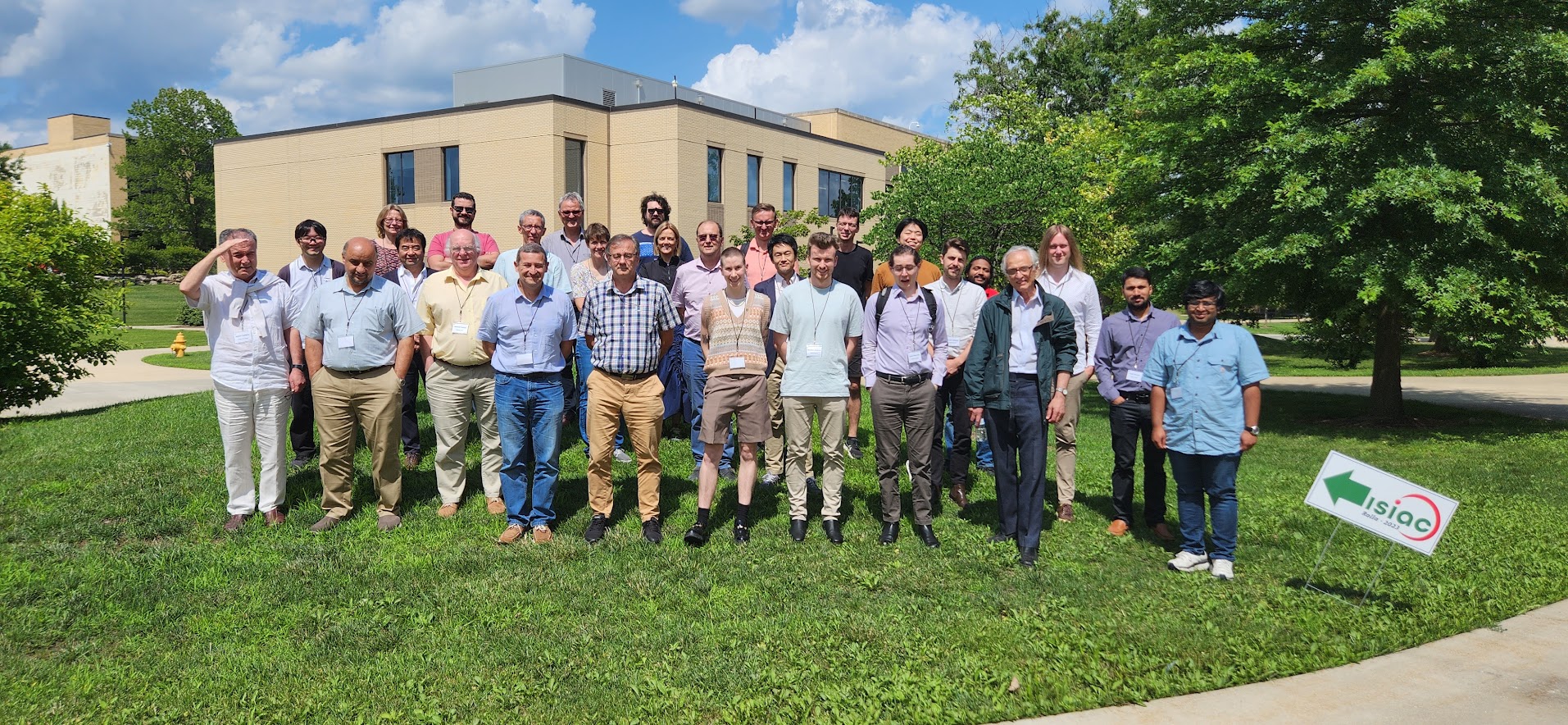
Scope and Mission
The International Symposium on Ion-Atom Collisions ISIAC is a biennial satellite of the International Conference on Photonic, Electronic and Atomic Collisions (ICPEAC). This year the ICPEAC XXXIII will be held shortly after the ISIAC in Ottawa, Canada.
The ISIAC brings together world-leading experts in the field of atomic collision physics involving heavy projectiles (ions). The scope includes the following topics:
- Fundamental processes in ion-atom and ion-molecule collisions
- Ion-surface and ion-solid interactions
- Fragmentation of molecules and clusters
- Ion-biomolecule interactions
- Laser-assisted collisions
- Atomic collision processes
- New developments, techniques and instrumentation
- Applications, including hadron therapy
Previous ISIAC meetings were held in Cluj/online (2021), Paris (2019), Palm Cove (2017), Barcelona (2015), Beijing (2013), Caen (2011), Norfolk (2009), Agios Nikolaos (2007), Rio de Janeiro (2005), …
Local Organizing Committee
Michael Schulz and Daniel Fischer (Missouri S&T)
International Advisory Committee
- Toshiyuki Azuma (RIKEN, Japan)
- Manolis Benis (University of Ioannina, Greece)
- Amine Cassimi (Centre de Recherche sur les Ions, les Matériaux et la Photonique, France)
- Alain Dubois (Sorbonne University, France)
- Daniel Fischer (Missouri University of Science and Technology, USA)
- Pedro Luis Grande (Universidade Federal do Rio Grande do Sul, Brazil)
- Maria Silva Gravielle (Instituto de Astronomia y Fisica del Espacio, Buenos Aires, Argentina)
- Clara Illescas (Universidad Autonoma de Madrid, Spain)
- Alisher Kadyrov (Curtin University, Australia)
- Xinwen Ma (Chinese Academy of Sciences, China)
- Ladislau Nagy (Babeş-Bolyai University, Romania)
- Rita Prosmiti (Instituto de Fisica Fundamental, Spain)
- Markus Schoeffler (Johann Wolfgang Goethe-Universität, Germany)
- Michael Schulz (Missouri University of Science and Technology, USA)
- Béla Sulik (Institute of Nuclear Research of the Hungarian Academy of Sciences, Hungary)
- Lokesh Tribedi (Tata Institute of Fundamental Research, India)
- Alexander Voitkiv (Heinrich-Heine-University of Düsseldorf, Germany)
- Wania Wolff (Universidade Federal do Rio de Janeiro, Brazil)
- Yong Wu (Institute of Applied Physics and Computational Mathematics, China)